Table of Contents
What Is Contract Logistics? A Complete Guide for 2025
Time: Aug 12,2025 Author: SFC Source: ppcm.com.cn
In today’s dynamic global supply chain landscape, logistics isn’t just a necessity—it’s a strategic lever for success. Contract logistics empowers businesses to outsource critical operations like warehousing, transportation, inventory management, and order fulfillment to trusted partners under long-term, bespoke agreements. Contract logistics not only cuts infrastructure overhead but also delivers scalability, reliability, and access to advanced logistics know-how. In this post, we'll demystify contract logistics, explain its advantages over traditional 3PL models, guide you through choosing the right logistics solution for your needs, and provide real-world examples to spark ideas for your own supply chain strategy.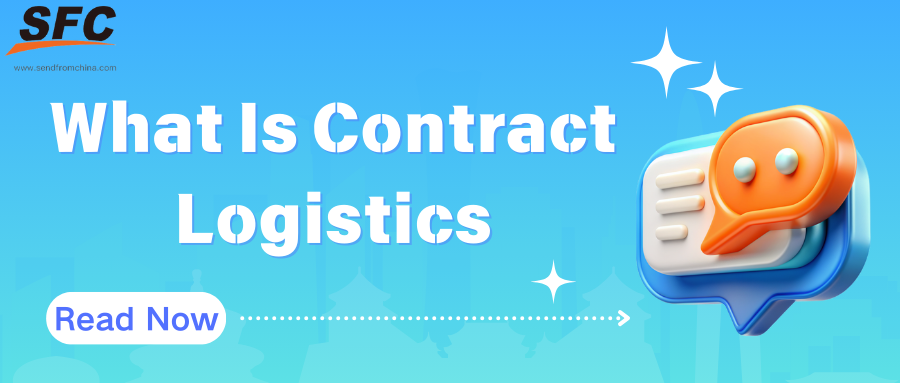
1. What Is Contract Logistics
At its core, contract logistics refers to a long-term, customized outsourcing arrangement in which a business entrusts parts of—or even its entire—logistics operations to a specialized external provider. This goes beyond merely hiring trucks or warehouses on demand: it involves comprehensive service packages agreed upon through durable service contracts. A contract logistics provider becomes not just a vendor, but a long-term partner in your supply chain journey.Such providers may undertake a wide spectrum of responsibilities—ranging from transportation planning and warehousing to inventory management, order processing, returns management, and even value-added tasks like assembly, labeling, or quality inspection.
2. Why Contract Logistics Matters
Let’s say you run an e-commerce operation in China—with customers around the globe. As volumes spike during shopping seasons or promotions, you stumble into a familiar challenge: your logistical setup creaks under pressure. Warehouses get packed, deliveries slip, and returns pile up.
Enter contract logistics. A savvy partner steps in, smooths out the bumps, and scales instantly—without your own infrastructure ballooning or your team getting swamped. That's not just cost relief—it’s peace of mind, operational agility, and visibility into every step with dashboards and APIs.
Here’s what truly sets contract logistics apart:
- Strategic alignment, not just hired hands. It’s a collaboration crafted for your needs, not a one-size-fits-all service.
- Resource freedom. No more juggling truck fleets or managing warehouses—reclaim capacity and invest it where you shine.
- Technology leverage. Benefit from WMS, TMS, and data analytics without heavy CAPEX—all from a partner’s platform.
- Scalability on demand. Scale up for the Beijing Singles’ Day rush or down for quieter weeks—without buying unused space or vehicles.
3. Advantages of Contract Logistics
Contract logistics offers businesses a strategic approach to managing their supply chains, providing numerous benefits that go beyond mere cost savings. By partnering with specialized logistics providers, companies can enhance efficiency, scalability, and service quality.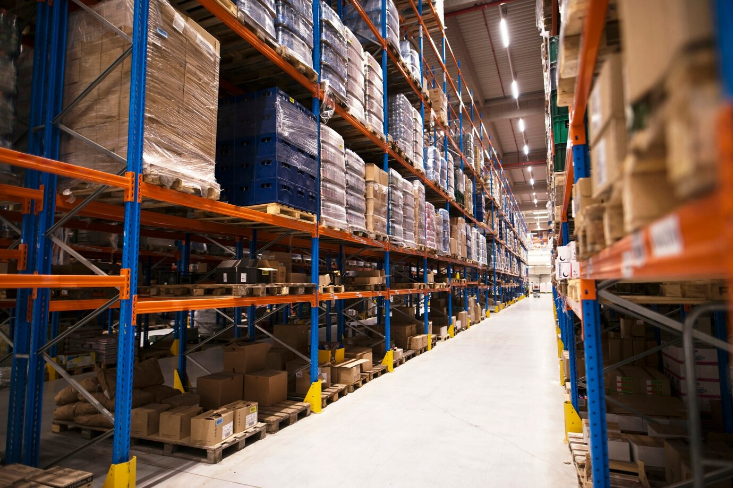
Cost Efficiency
One of the primary reasons businesses turn to contract logistics is the potential for significant cost savings. Outsourcing logistics functions allows companies to avoid the substantial capital investment required for infrastructure, technology, and labor. Providers of contract logistics services often leverage economies of scale, enabling them to offer services at a lower cost than businesses could achieve independently.Scalability and Flexibility
The dynamic nature of markets necessitates a logistics solution that can adapt to changing demands. Contract logistics offers scalability, allowing businesses to adjust their logistics operations in response to fluctuations in order volume, seasonal peaks, or market expansion. The flexibility ensures that companies can maintain service levels without overcommitting resources during periods of low demand.Access to Expertise and Technology
Contract logistics providers bring specialized knowledge and advanced technologies that may be costly or impractical for individual companies to develop in-house. These providers utilize state-of-the-art warehouse management systems (WMS), transportation management systems (TMS), and real-time tracking tools to enhance visibility and control over the supply chain .Furthermore, their expertise in logistics operations enables them to implement best practices that improve efficiency, reduce errors, and enhance customer satisfaction.
Focus on Core Competencies
By outsourcing logistics functions, businesses can redirect their focus toward core activities such as product development, marketing, and customer service. The strategic alignment allows companies to leverage their strengths and drive innovation, while leaving the complexities of logistics to specialized partners.Enhanced Risk Management
Effective risk management is crucial in today's volatile business environment. Contract logistics providers help mitigate risks associated with supply chain disruptions by implementing robust contingency plans, diversifying transportation options, and ensuring compliance with regulatory requirements. Their proactive approach to risk management helps businesses maintain continuity and resilience in the face of unforeseen challenges.Improved Customer Experience
Timely delivery, accurate order fulfillment, and reliable service are critical components of customer satisfaction. Contract logistics providers focus on optimizing these aspects by streamlining processes and employing best practices. The commitment to service excellence enhances the overall customer experience, fostering loyalty and repeat business.Global Reach
For businesses operating on an international scale, contract logistics offers the infrastructure and expertise needed to manage global supply chains effectively. Providers with a global network can coordinate cross-border shipments, navigate customs regulations, and ensure compliance with international standards, facilitating seamless global operations.Sustainability Initiatives
Sustainability is increasingly becoming a priority for businesses and consumers alike. Contract logistics providers are adopting green practices such as optimizing transportation routes to reduce emissions, implementing energy-efficient warehouse operations, and promoting the use of sustainable packaging materials. These initiatives not only contribute to environmental conservation but also align with corporate social responsibility goals.4. How Does Contract Logistics Work
Contract logistics is a comprehensive, long-term outsourcing solution where businesses delegate key supply chain functions to specialized third-party providers. Unlike traditional logistics services, contract logistics offers an integrated approach, managing the entire journey of goods from manufacturer to customer. A contract typically governs the collaboration, ensuring tailored solutions that align with a company's specific needs.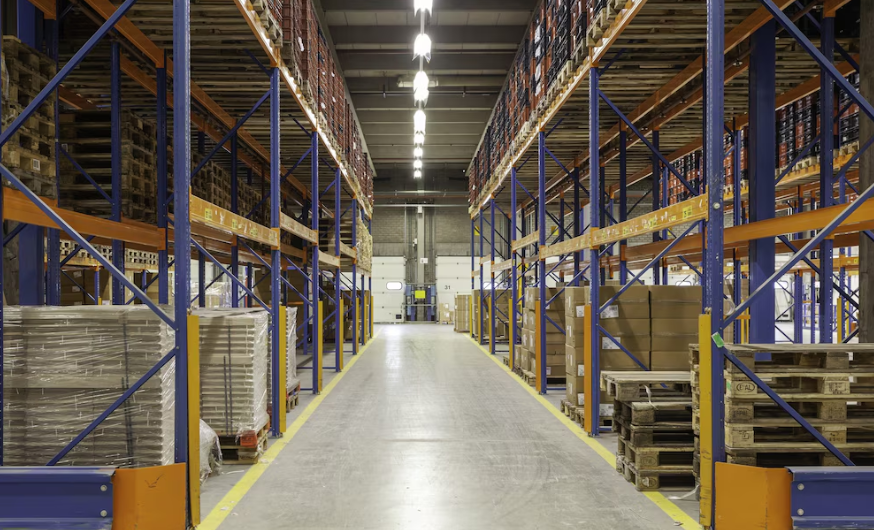
Strategic Planning and Design
The foundation of contract logistics lies in meticulous planning. Providers work closely with businesses to design customized supply chain solutions that encompass warehousing, transportation, inventory management, and distribution. The strategic alignment ensures that logistics operations are optimized to meet the unique demands of the business, facilitating smoother operations and better resource utilization.Warehousing and Inventory Management
Contract logistics providers manage warehousing operations, including the receipt, storage, and dispatch of goods. Advanced technologies like Warehouse Management Systems are employed to track inventory levels in real-time, enabling accurate forecasting and efficient stock control. This integration helps in minimizing stockouts and overstock situations, thereby enhancing service levels and reducing costs.Order Fulfillment and Distribution
Once orders are received, contract logistics providers handle the picking, packing, and shipping processes. They utilize Transportation Management Systems to determine the most efficient routes and modes of transport, ensuring timely delivery. The end-to-end management not only improves delivery speed but also enhances customer satisfaction by providing reliable and consistent service.Technology Integration
Modern contract logistics heavily relies on technology to streamline operations. Providers integrate systems like WMS and TMS with a company's existing platforms, offering real-time visibility into the supply chain. This technological synergy allows for better decision-making, improved efficiency, and the ability to swiftly adapt to changes in demand or market conditions.Reverse Logistics
Contract logistics also encompasses reverse logistics, managing the return of goods from customers. This process involves handling returns, refurbishing products, and restocking inventory. Efficient reverse logistics are crucial for maintaining customer satisfaction and optimizing inventory levels, ensuring that returned items are processed and reintegrated into the supply chain promptly.Continuous Improvement and Scalability
A key advantage of contract logistics is its adaptability. Providers continuously assess and refine logistics processes to enhance efficiency and reduce costs. As businesses grow or market conditions change, contract logistics solutions can be scaled or modified to meet new demands, offering flexibility that supports long-term business objectives.5. Differences Between Contract Logistics and 3PL (Third-Party Logistics)
Understanding the distinctions between contract logistics and third-party logistics (3PL) is crucial for businesses aiming to optimize their supply chain operations. While both involve outsourcing logistics functions, they differ in scope, customization, and strategic alignment.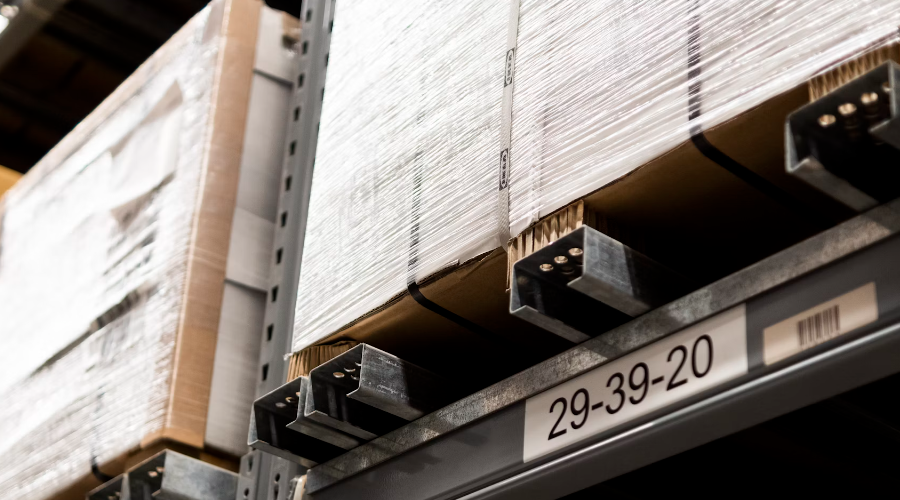
Scope of Services
- Contract Logistics: Involves long-term, dedicated partnerships where a provider manages specific logistics functions tailored to a company's needs. This can include warehousing, transportation, inventory management, and order fulfillment, all integrated into a cohesive strategy.- 3PL: Offers a broader range of services on a more flexible, as-needed basis. These services can encompass transportation, warehousing, distribution, and sometimes additional services like packaging or freight forwarding.
Customization and Integration
- Contract Logistics: Highly customized to align with a company's specific operational requirements. Providers work closely with businesses to design and implement logistics solutions that integrate seamlessly with existing processes and systems.- 3PL: While some level of customization is possible, 3PL services are generally more standardized. They offer flexibility but may not integrate as deeply into a company's operations as contract logistics providers do.
Strategic Partnership vs. Transactional Relationship
- Contract Logistics: Represents a strategic partnership where both parties collaborate closely over an extended period. This relationship focuses on long-term goals, continuous improvement, and mutual benefit.- 3PL: Often characterized by a transactional relationship, where services are provided as needed. While 3PLs can become long-term partners, the engagement is typically more flexible and less integrated than with contract logistics.
Cost Structure
- Contract Logistics: May involve higher initial setup costs due to the tailored nature of services and the integration required. However, over time, businesses can achieve cost savings through optimized operations and efficiencies.- 3PL: Offers a more variable cost structure, with expenses incurred based on the services utilized. This can be advantageous for businesses with fluctuating needs but may not provide the same level of cost optimization as contract logistics.
Technology and Innovation
- Contract Logistics: Providers often invest in advanced technologies and systems to support customized solutions, such as warehouse management systems and transportation management systems. These technologies are integrated to enhance efficiency and visibility.- 3PL: Utilizes technology to manage operations across multiple clients. While they may offer sophisticated systems, these are generally designed to serve a broad customer base and may not be as tailored to individual business needs.
Flexibility and Scalability
- Contract Logistics: Offers scalability within the context of the agreed-upon services. Changes to the scope of services or operations may require renegotiation of terms.- 3PL: Provides greater flexibility, allowing businesses to scale services up or down based on current needs. This adaptability makes 3PLs suitable for companies with variable or unpredictable logistics requirements.
Ideal Use Cases
- Contract Logistics: Best suited for large enterprises or businesses with complex, stable supply chains that require tailored logistics solutions and long-term partnerships.- 3PL: Ideal for small to medium-sized businesses or those with fluctuating logistics needs seeking flexible, cost-effective solutions without the commitment of a long-term contract.
6. How to Choose Logistics Options for Your Business
Selecting the right logistics strategy is pivotal for optimizing your supply chain, enhancing customer satisfaction, and maintaining cost-effectiveness. Whether you're a startup or an established enterprise, aligning your logistics approach with your business model and objectives is essential.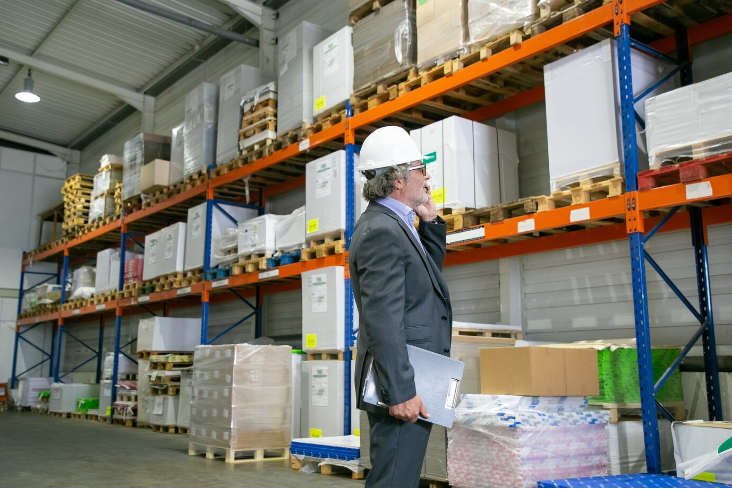
Assess Your Business Needs
Begin by evaluating your specific logistics requirements:- Order Volume: Determine the frequency and scale of your shipments. High volumes may necessitate dedicated logistics solutions.
- Product Type: Fragile, perishable, or hazardous goods require specialized handling and transportation.
- Delivery Speed: Decide on the urgency of deliveries—same-day, next-day, or standard shipping.
- Geographical Reach: Consider whether your logistics needs are local, national, or international.
Understanding these factors will guide you in choosing between options like third-party logistics (3PL), contract logistics, or in-house solutions.
Evaluate Potential Logistics Partners
When considering external logistics providers, assess:- Experience and Expertise: Look for providers with a proven track record in your industry and the specific services you require.
- Technology Integration: Ensure they offer advanced systems for real-time tracking, inventory management, and seamless integration with your platforms.
- Scalability: Choose partners capable of adapting to your business growth and fluctuating demands.
- Customer Service: Responsive and proactive support is crucial for addressing issues promptly.
Consider Cost Implications
Analyze the total cost of ownership, including:- Shipping Rates: Compare costs across different providers and service levels.
- Warehousing Fees: Account for storage, handling, and inventory management costs.
- Technology Investments: Factor in expenses for systems and software integration.
- Hidden Charges: Be aware of potential surcharges, such as fuel or peak season fees.
Opt for a logistics solution that balances cost with service quality to ensure profitability.
Prioritize Reliability and Reputation
A logistics partner's reliability directly impacts your business operations:- On-Time Delivery: Consistent and timely deliveries are essential for customer satisfaction.
- Damage and Loss Rates: Low incidences of damaged or lost goods reflect a provider's competence.
- Customer Feedback: Research reviews and testimonials to gauge provider performance.
Align with Your Business Strategy
Ensure your logistics approach supports your overarching business goals:- Brand Positioning: Premium brands may require expedited shipping and personalized services.
- Sustainability Goals: Consider providers with eco-friendly practices and carbon footprint reduction initiatives.
- Market Expansion: Choose logistics solutions that facilitate entry into new markets or regions.
7. Real-World Examples: Names You Know
Here are some global players using contract logistics for major brands:GXO Logistics
A U.S.-based specialist in contract logistics and warehousing, serving top global brands like Apple, Nike, Boeing, Verizon, Whirlpool, Inditex, and Nestlé. With over 1,000 facilities and advanced automation, it's among the world’s largest contract logistics providers as of 2023.FedEx Supply Chain (formerly GENCO)
A large U.S. 3PL and contract logistics provider, offering warehousing, fulfillment, reverse logistics, and transportation. Processes hundreds of millions of returns and hundreds of thousands of shipments daily.UPS, Kuehne + Nagel, DHL Supply Chain
Established global names offering contract logistics services—spanning warehousing, transportation, order fulfillment, and value-added services.Backed by those examples, SendFromChina can position itself effectively in Asia-Pacific markets—highlighting regional insight and cost-effective, tailored logistics services.
8. Conclusion
To sum up: contract logistics is a strategic, long-term partnership model where businesses outsource complex logistics functions—like warehousing, transport, inventory, and value-added tasks—to expert external partners under tailored agreements. This model delivers cost efficiency, scalability, deep operational expertise, advanced technology, and reliability—all while freeing you to focus on growth, customer experience, and your core business.Whether you're expanding globally, launching new products, or simply want a smoother, smarter supply chain, contract logistics can unlock competitive advantage—and SendFromChina is ideally positioned to help companies navigate this terrain with on-the-ground expertise and tailored service.
9. FAQs
1. What’s the difference between contract logistics and ad-hoc shipping?
Contract logistics involves long-term, strategic partnerships, while ad-hoc shipping is one-off, transactional logistics.2. Can contract logistics help with returns and recycling?
Yes—return management (reverse logistics), including recycling or refurbishment, is commonly included.3. Is contract logistics only for big companies?
Not at all. Even SMEs can benefit by gaining access to infrastructure and tech they couldn't justify building themselves.4. What industries benefit most from contract logistics?
Pharma, e-commerce, high-tech, manufacturing, spare-parts, and FMCG often realize the greatest returns.5. How do I ensure a logistics partner meets expectations?
Look for clearly defined SLAs, performance metrics, real-time visibility, and strong references or case studies. Post Views:23
Post Views:23
Copyright statement: The copyright of this article belongs to the original author. Please indicate the source for reprinting.
Previous Post
What Is Seller Fulfilled Prime? A Comprehensive Guide with Pros, Cons & Comparison
Next Post
TAGS
Hot Research
Recent News
Get a Custom China Fulfillment Solution with FREE Storage for 60 Days
 Want to know about our services, fees or receive a custom quote?
Want to know about our services, fees or receive a custom quote?
 Please fill out the form on the right and we will get back to you within a business day.
Please fill out the form on the right and we will get back to you within a business day.
 The more information you provide, the better our initial response
will be.
The more information you provide, the better our initial response
will be.





 TAGS:
TAGS: